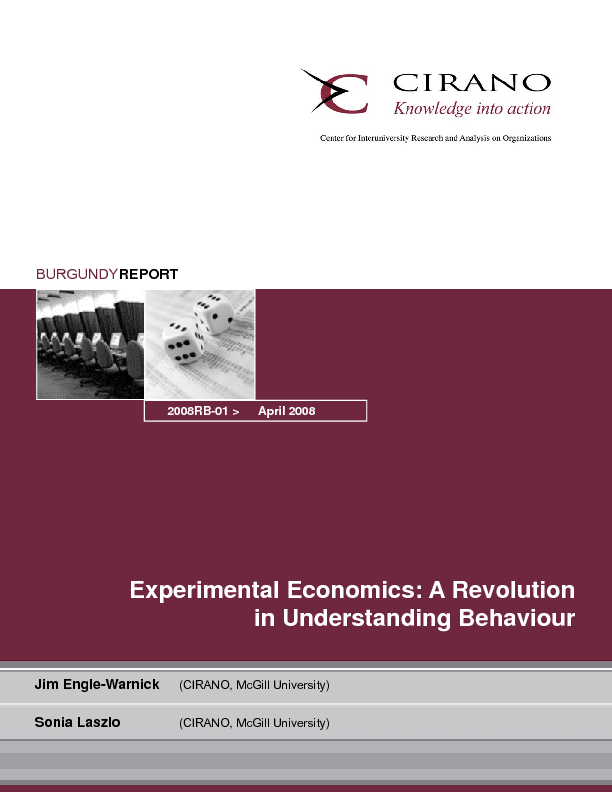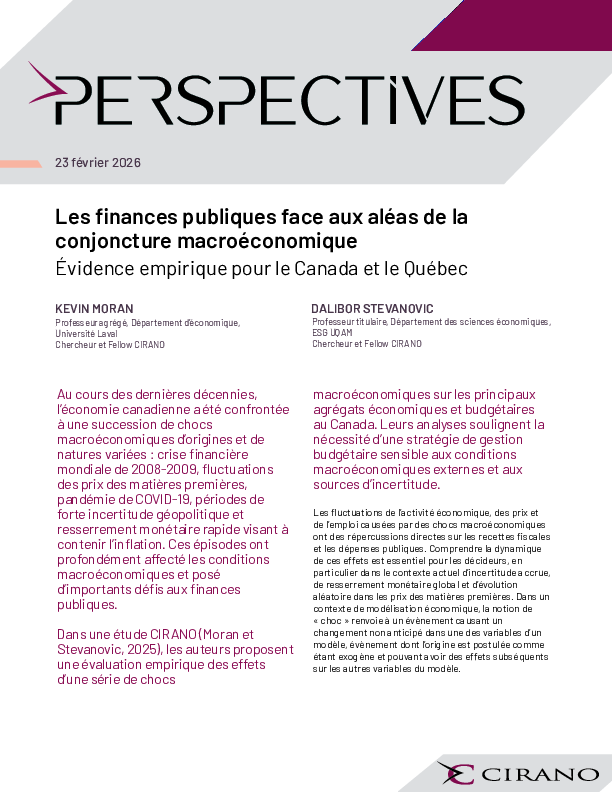Experimental Economics: A Revolution in Understanding Behaviour
What is the best compensation package to offer employees? How should choice among investments in pension plans be structured? Should a government use auctions to sell natural resources? Is it possible to design a market to reduce non-point source pollution in Quebec's watersheds? What holds people back from trying technologies that are completely new to them?
Over the last two decades a revolution has occurred in the advancement of our ability to answer questions such as these. This revolution is called experimental economics. Experimental economics is the use of a controlled laboratory environment to understand decisions people make. In an economics experiment, people make decisions in a laboratory. They are paid according to the outcome of their decisions, and their decisions are analyzed to determine the effect of an institutional or environmental change that is being tested.
Through the analysis of behaviour in controlled economics experiments, much has been learned about behaviour when outcomes are uncertain: for example, new notions about preferences toward risk and consumption over time have been developed. Much has also been learned about how people behave in strategic environments: for example, bidding behaviour in auctions is better understood, and the strategies people use as they learn how to trust each other have been observed.
The purpose of this report is to describe the methodology of experimental economics and to detail its major uses. We will focus on the ability to measure behaviours in a wide variety of situations important to organizations. We will show, with examples from our own work, how feedback between the laboratory and the field can result in new understanding of decisions in an effort to affect the cycle of poverty in a developing country in fundamentally new ways.
[ - ]
Over the last two decades a revolution has occurred in the advancement of our ability to answer questions such as these. This revolution is called experimental economics. Experimental economics is the use of a controlled laboratory environment to understand decisions people make. In an economics experiment, people make decisions in a laboratory. They are paid according to the outcome of their decisions, and their decisions are analyzed to determine the effect of an institutional or environmental change that is being tested.
Through the analysis of behaviour in controlled economics experiments, much has been learned about behaviour when outcomes are uncertain: for example, new notions about preferences toward risk and consumption over time have been developed. Much has also been learned about how people behave in strategic environments: for example, bidding behaviour in auctions is better understood, and the strategies people use as they learn how to trust each other have been observed.
The purpose of this report is to describe the methodology of experimental economics and to detail its major uses. We will focus on the ability to measure behaviours in a wide variety of situations important to organizations. We will show, with examples from our own work, how feedback between the laboratory and the field can result in new understanding of decisions in an effort to affect the cycle of poverty in a developing country in fundamentally new ways.




